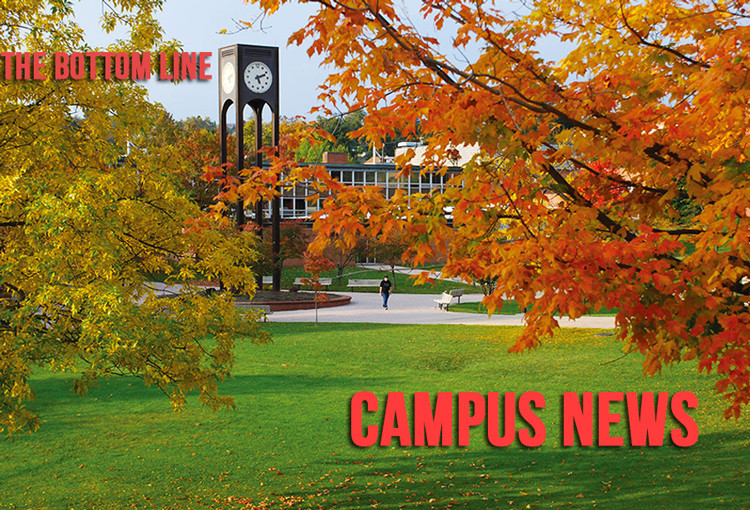FSU Residence Life Plans to Raise Room and Board Next Year for New Wireless Access Plan
Frostburg State University is planning to increase room and board rates next year to pay for a new wireless access plan, according to Dana Severance, FSU’s residence life director.
David Rose, vice president of administration and finance, along with his division, keeps track of the University’s spending and income. Every year, Rose and his staff determine how and where the expenses will increase for the following year. Examples of these expenses include the minimum wage increase, health insurance increases, and the fluctuating cost of utilities. Rose is responsible for determining how these things will be taken care of.
Residence Life only deals with the cost of room and not board. Students pay other fees, called activity fees, that pay for Late @ Lane events and campus events for students. Room fees cover the cost for students to live comfortably in the residence halls (i.e., gas, electricity, cable fees, repairs, renovations, etc). The room rate normally goes up three or four percent each year. That increase covers how much more they think they will need to pay future fees.
Severance explained that when the university needs to increase room rates, administrators must go to the University System of Maryland’s Board of Regents “to tell them how much we’re going to increase our rates and get an approval for those rates.” The increase has to be justified. The decision was to raise the rate six percent this year, which is a big jump. It is estimated that four percent will go to normal expenses while the other two percent will be used to improve the Internet access within the residence halls.
“That extra two percent is the first payment towards improving access in the residence halls,” said Severance. FSU must take steps to initiate this change. First, the Board of Regents must approve of this increase, which Severance feels they will. Secondly, that two percent still has to be set aside to go to the general budget. Ex. “Let’s say that there is a fire in the ARMAH; the repair money must come from this rate increase. The idea is to use that two percent, if not needed for repairs or any unexpected event, for wireless access in the residence halls.
“I have been pushing very hard to get Internet improved in the residence halls; it’s the thing that students hate the most.”
This has to be approved because many students have tablets, cell phones, Xboxes or PlayStations that are at limited use. Tablets only have good connection in the lounges, cell phones sometimes have bad service and insufficient data plans, and online game playing is limited because there is only wired access in the rooms. More is expected when living in the dorms. This is what students of Frostburg deserve, Severance said.
This improvement is set for the next three years of which increases will gradually be made. “The hardest part was saying, where do we get the money to do this… I do believe students are willing to pay two percent,” said Severance.
“The tentative plan is to increase access points… equipping them with more points so in any room you’re in, you get access.” This will only solve half of the problem though, because the university’s bandwidth isn’t big enough for the amount of students living in the dorms.
The reality is students use more than just one device at a time and all require wireless access. Only those with unlimited data plans are not suffering from these restrictions.
“I am just the advocate for students in residence halls,” said Severance. “I am not the decision maker.”
Troy Donoway, chief information officer; Dave Rose, Vice President of Administrations and Finance; and Tom Bowling,Vice President of Student and Education Services, are behind this improvement.
The RLO’s budget will also go to things like lounge furniture in the residence halls, salaries for staff, contractual agreements, new mattresses, etc.
Severance believes that this increase will not result in more people moving off campus especially once they find out about the new wireless access plan. Severance also adds that Frostburg plans to have a new residence hall built within the next ten years. Another residence hall with wireless access, resulting in a happier student environment inside the dorms.



